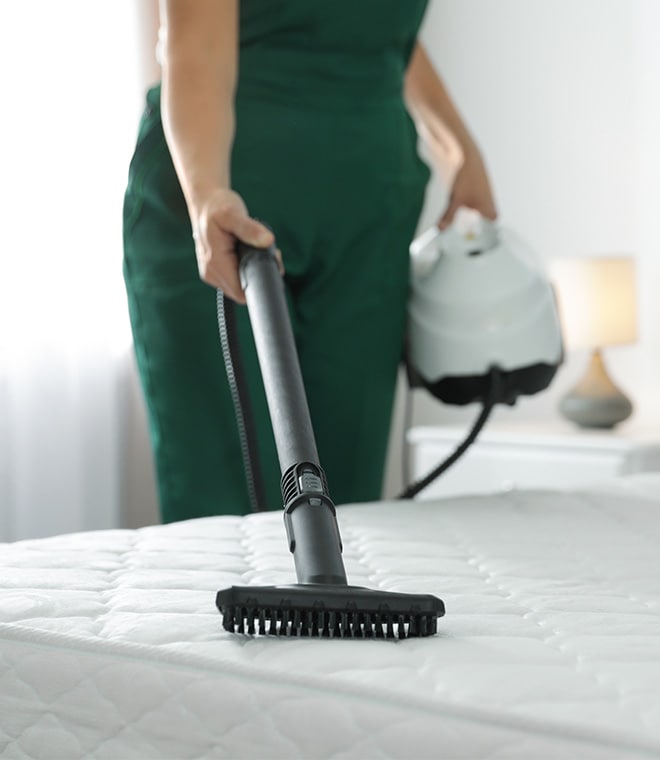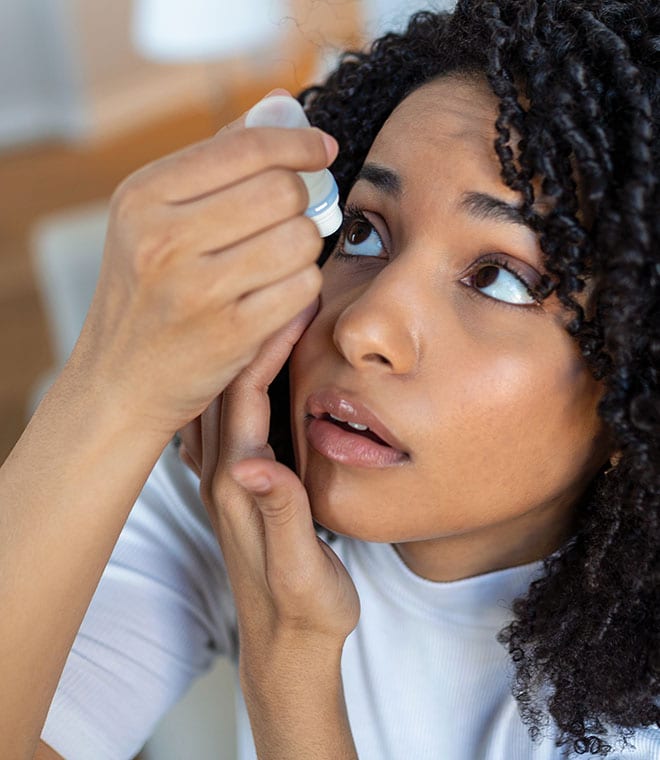Health
Pollen basics for the allergy sufferer
By Sanjay “Jay” Patel, DO | Allergy & Immunology May 15, 2025 • 9 min
If you experience allergy symptoms around the same time each year, an allergic reaction to pollen may be to blame. Millions of people experience seasonal allergies due to the presence of pollen in the environment. Fortunately, there are many treatments available for managing pollen allergy symptoms.
What is pollen?
To reproduce, trees, grasses, flowering plants and weeds produce a fine powder, known as pollen, which fertilizes other plants. The wind carries pollen to other locations. When this happens, insects and animals pick it up and spread it to new areas. The amount of pollen in the air varies based on the time of year, time of day, and factors such as wind and rain levels. In addition, outdoor molds produce spores that spread in the wind, similarly to pollen.
What is a pollen allergy?
Your immune system helps protect you from illnesses by reacting to threats like bacteria and viruses. When you encounter harmful microbes, your immune system releases chemicals to help fight them off. Allergies occur when your body reacts to harmless proteins, known as allergens, as if they were threats.
In the case of an allergy to pollen, the powder produced by plants is the allergen, or trigger. If you’re exposed to pollen and you’re allergic, your body releases a chemical called histamine, which causes allergy symptoms.
Ragweed pollen is one of the most common pollen allergens. About 15% of Americans are allergic to the pollen produced by this weed. You may also experience allergies to trees, grasses, other weeds and mold spores throughout the year. Some people are allergic to pollen produced by just one plant species while others have reactions to the pollen from a variety of plant species. Each plant species releases pollen at certain times of the year in different geographic areas. However, the pollen may spread far distances in the wind.
What are the symptoms of allergies from pollen?
If you have an allergy to pollen, you may experience one or more of the following symptoms:
- Sneezing
- Runny nose (usually clear and watery)
- Nasal congestion
- Itchy eyes, skin, nose and throat
- Swelling around the eyes
- Red or watery eyes
- Wheezing
People with asthma can be sensitive to pollen and may be more likely to experience asthma episodes and attacks during pollen seasons.
When is allergy season?
The onset of allergy season varies depending on when plants begin producing pollen and how long they produce it. As the climate has gotten warmer, allergy seasons have gotten longer. Pollen seasons vary depending on which part of the country you live in. In general, allergy season occurs around the following times:
- Tree pollen season: Starts in January or February and lasts through April
- Grass pollen season: Lasts from April to June
- Weed pollen season: Occurs from August until the first hard frost
Pollen from certain flowering plants is less likely to trigger allergy symptoms. Brightly colored flowers are designed to attract insects for pollination. This means the insects disperse the pollen rather than the wind. As a result, there is usually little to no flower pollen in the air.
What can I do about pollen allergies?
If you suffer from pollen allergies, treatments and lifestyle changes can help you control symptoms. Follow these tips to help manage seasonal pollen allergies:
1. Keep an eye on pollen counts: The pollen count is an estimate of how much pollen will be in the air on a given day.
- Check TV weather reports, newspapers and online apps to find out what the pollen count is for your area.
- Try to stay indoors as much as possible when pollen counts are high. If that’s not possible, schedule outdoor time in the afternoon and early evening when pollen levels are usually lower.
- Avoid going outdoors on windy days if possible.
- Keep your doors and windows closed on high-pollen days to limit how much gets inside of your home.
2. Limit your exposure to allergens: Although you likely can’t avoid pollen entirely, you can take steps to limit your exposure to these allergens.
- Don’t mow the lawn, pull weeds, rake leaves or perform other tasks that could release pollen into the air during allergy season.
- If you need to perform gardening chores, wearing a mask can help limit how much pollen you breathe in.
- When you come inside during allergy season, take off your clothing and shower or rinse your body to remove lingering pollen.
- Dry your laundry indoors instead of outside to avoid getting pollen on your linens and clothing.
- Don’t drive your car with the windows open.
- Pets can track pollen indoors. Wiping down paws and giving frequent baths when appropriate can help keep it from accumulating inside your home.
3. Focus on indoor air quality: Pollen from outside can enter your home through open doors or windows and through cracks and other imperfections in your home’s structure.
- Installing a high-efficiency particulate air (HEPA) filter in your heating and cooling system can help remove many allergens from the air.
- Check the manufacturer’s instructions to find out how frequently you should replace HVAC filters. Follow the recommended maintenance schedule.
- During allergy season, vacuum your floors regularly with a vacuum that has a HEPA filter.
- Dust weekly with a microfiber cloth that grabs and holds onto allergens. Rinse the cloth clean after use.
4. Use over-the-counter remedies: For mild seasonal allergies, over-the-counter medications can help control symptoms. Options include:
- Nasal corticosteroids like fluticasone propionate. These can help prevent and relieve allergy symptoms by suppressing inflammation.
- Nasal antihistamines like azelastine. These can help reduce histamine effects in your nose to relieve your allergy symptoms.
- First-generation oral antihistamines like diphenhydramine. These interfere with histamine to quickly alleviate symptoms for a short time period. However, they may cause drowsiness.
- Second-generation oral antihistamines like loratadine, cetirizine and fexofenadine. These block the actions of histamine for longer periods of time, and they’re less likely to cause drowsiness.
- Decongestant-antihistamines like cetirizine-pseudoephedrine and fexofenadine-pseudoephedrine. These include a long-acting antihistamine and a second medication that eases nasal congestion.
Over-the-counter medications can cause side effects or interact with other medications. Consult your healthcare provider before taking any new medication for pollen allergies.
Get help managing your pollen allergies
The first step toward developing a management plan for pollen allergies is to talk to your healthcare provider. They can recommend medications that may work for you and offer other advice for reducing symptoms.
Prescription oral medications, allergy shots or sublingual immunotherapy (SLIT) may help your body learn to tolerate pollen over time if you have moderate or severe seasonal allergies. Your healthcare provider can help you decide which treatments are right for you and give you individualized advice on how to manage symptoms through self-care and lifestyle changes. Specialists in the allergy/immunology field can help perform testing for allergies and offer allergy shots to reduce the severity of allergic reactions.
Updated by Julie McDaniel, MSN, RN, CRNI, May 2025.
Sources:
- https://www.cdc.gov/climate-health/php/effects/allergens-and-pollen.html
- https://www.hopkinsmedicine.org/health/conditions-and-diseases/seasonal-allergies/allergens-pollen
- https://www.fda.gov/consumers/consumer-updates/know-which-medication-right-your-seasonal-allergies
- https://medlineplus.gov/ency/patientinstructions/000549.htm
- https://familydoctor.org/antihistamines-understanding-your-otc-options/
- https://www.niehs.nih.gov/health/topics/agents/allergens/pollen/index.cfm
- https://aafa.org/allergies/types-of-allergies/pollen-allergy/
- https://www.mayoclinic.org/diseases-conditions/hay-fever/in-depth/seasonal-allergies/art-20048343
- https://www.mayoclinic.org/diseases-conditions/allergies/in-depth/allergy-medications/art-20047403#:~:text
- https://www.aaaai.org/tools-for-the-public/conditions-library/allergies/outdoor-allergens-ttr
- https://www.merckmanuals.com/home/immune-disorders/allergic-reactions-and-other-hypersensitivity-disorders/seasonal-allergies
- https://aafa.org/allergies/types-of-allergies/pollen-allergy/grass-pollen-allergy/
- https://www.epa.gov/climate-indicators/climate-change-indicators-ragweed-pollen-season
- https://www.merckmanuals.com/professional/immunology-allergic-disorders/allergic-autoimmune-and-other-hypersensitivity-disorders/allergic-rhinitis
- https://aafa.org/allergies/types-of-allergies/pollen-allergy/tree-pollen-allergy/
- https://www.aaaai.org/tools-for-the-public/allergy,-asthma-immunology-glossary/pollen-counts-defined
- https://www.health.harvard.edu/diseases-and-conditions/get-ready-for-allergy-season
- https://aafa.org/asthma/asthma-triggers-causes/air-pollution-smog-asthma/indoor-air-quality/



